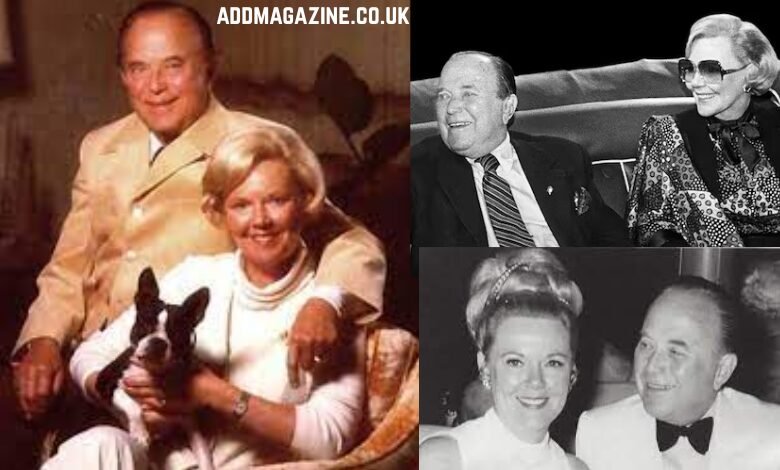Marilyn Kroc Barg is a name often associated with McDonald’s and the Kroc family, particularly because of her famous father, Ray Kroc, the man credited with turning McDonald’s into the fast-food empire it is today. However, Marilyn’s life story goes far beyond being the daughter of a businessman. Known for her compassion, philanthropic work, and efforts to support families in need, Marilyn Kroc Barg left a meaningful legacy that endures to this day.
Early Life and Family Background
Marilyn Kroc Barg entered the world on October 15, 1924, in Chicago, Illinois, as the sole daughter of Ray Kroc and Ethel Janet Fleming. Growing up in Chicago during the 1920s and 1930s, Marilyn’s childhood was shaped by the contrasts of a busy, evolving city and her father’s rise to success. The Kroc family lived through the Great Depression, and while they did not have immense wealth early on, Ray’s business pursuits later brought financial success that dramatically altered the family’s lifestyle.
Ray Kroc’s involvement in the McDonald’s Corporation began in the late 1940s when he helped expand the McDonald brothers’ small restaurant into a global franchise. While this journey brought great prosperity, Marilyn’s upbringing was rooted in values of hard work, humility, and empathy—principles that she would carry throughout her life. As an only child, Marilyn developed a close relationship with her parents, particularly her father, whose business ambitions and achievements deeply influenced her.
Despite being the daughter of a man who would become a global business legend, Marilyn did not pursue fame or the spotlight. She focused on building her own identity, away from the overshadowing success of McDonald’s. However, Marilyn’s life was inevitably intertwined with the McDonald’s brand due to her father’s prominent position in the company.
Marilyn Kroc Barg’s Marital Life
Marilyn Kroc Barg’s personal life also reflected her pursuit of independence. She was married twice during her lifetime. Her first marriage was to Sylvester Nordly Nelson in 1949, although the marriage ended in divorce. In 1960, she remarried to Walter James Barg, a union that would last until her untimely passing in 1973. Marilyn’s second marriage with Walter Barg seems to have been a source of stability and support in her life, and she had a relatively private family life compared to her father’s highly publicized career.
Commitment to Philanthropy
While Marilyn Kroc Barg’s name is often linked to the McDonald’s Corporation, her most significant legacy is rooted in her philanthropic efforts. She was a passionate supporter of several charitable causes, particularly those related to children and families in need. One of her most enduring contributions to charity was her involvement in the founding of the Ronald McDonald House Charities (RMHC), an organization that provides housing and support for families whose children are receiving medical treatment.
The idea for Ronald McDonald House began in the 1970s, as a way to offer families a place to stay while their children were being treated at nearby hospitals. Marilyn, recognizing the strain that illness and hospital stays could place on families, was deeply moved by the need for such an initiative. Through her involvement, the charity grew, and the Ronald McDonald House became a lifeline for families across the world.
While the foundation was a collaborative effort with her father and other McDonald’s executives, Marilyn’s dedication to the cause was central to its success. She was known for her hands-on approach, offering both financial support and personal involvement. The Ronald McDonald House became an enduring symbol of Marilyn’s commitment to children’s welfare and the importance of community support during difficult times.
Marilyn Kroc Barg’s Influence and Legacy
Marilyn’s contributions to charity were not limited to the Ronald McDonald House Charities. Her broader philanthropic work reflected her desire to improve the lives of those around her, particularly families and children facing difficult circumstances. Through her efforts, Marilyn was able to create lasting change in the lives of many people. While McDonald’s may have given her a platform, it was her personal sense of empathy and service that defined her life.
As a philanthropist, Marilyn Kroc Barg was a woman who believed in the power of community and the importance of giving back. Her actions were driven by a deep understanding of the struggles that many families faced, and she worked to ensure that they had the support and resources they needed to get through difficult times.
Marilyn’s dedication to charity and community care had a lasting impact, not only on the families she directly helped but also on the way the broader public viewed corporate social responsibility. She demonstrated that individuals with access to wealth and influence have the ability to change lives, and she set an example for others in positions of power to follow.
Marilyn’s Health and Untimely Death
Despite her dedication to philanthropy and family, Marilyn Kroc Barg’s life was tragically cut short. She passed away on September 11, 1973, at the age of 48. Marilyn’s death was a shock to many, as she was still relatively young, and her work in the charitable sector had just begun to gain significant momentum. She died at her home in Arlington Heights, Illinois, and was buried at Skokie’s Memorial Park Cemetery.
Her death left a void not only in her family’s lives but also in the world of philanthropy, where her contributions had begun to make a tangible difference. It is clear, however, that Marilyn’s legacy endured far beyond her passing. The Ronald McDonald House Charities, which she had played an instrumental role in founding, continued to grow and thrive in the years after her death. The organization has since become one of the largest and most recognizable charities in the world, providing crucial support to families of seriously ill children around the globe.
The Kroc Family’s Impact
Marilyn Kroc Barg’s family, particularly her father Ray Kroc, is undeniably one of the most well-known families in American business history. Ray Kroc’s vision for McDonald’s transformed the fast-food industry, turning the company into one of the most successful franchises worldwide. While Ray’s contributions to the world of business are widely celebrated, Marilyn’s story is a reminder that success can be measured in many ways.
Her life exemplifies the importance of using one’s influence for good. Marilyn was not content to rest on her family’s laurels or simply enjoy the financial benefits of her father’s success. Instead, she sought out opportunities to make a difference in the lives of others. Through her philanthropic efforts, particularly with the Ronald McDonald House Charities, Marilyn Kroc Barg helped bring attention to the needs of families with sick children, ultimately improving the lives of countless people around the world.
Conclusion
Marilyn Kroc Barg may not have sought the limelight or the fame that came with being the daughter of Ray Kroc, but her legacy as a philanthropist, businesswoman, and advocate for families in need is undeniable. Her work with Ronald McDonald House Charities, in particular, continues to benefit thousands of families today, and her story serves as a reminder that true success lies in making a positive impact on the world.
Although Marilyn Kroc Barg passed away at a young age, her influence lives on through the charitable organizations she helped build and the values she embodied. She is remembered not only as Ray Kroc’s daughter but also as a compassionate and generous individual who devoted her life to helping others. Marilyn’s legacy is one of service, kindness, and the power of giving back—a message that continues to resonate long after her passing.
FAQs
1. Who was Marilyn Kroc Barg?
Marilyn Kroc Barg was the daughter of Ray Kroc, known for her philanthropic work, particularly with Ronald McDonald House Charities.
2. What was Marilyn Kroc Barg’s contribution to charity?
Marilyn played a pivotal role in founding Ronald McDonald House Charities, which supports families with seriously ill children.
3. When did Marilyn Kroc Barg pass away?
Marilyn Kroc Barg died on September 11, 1973, at the age of 48, in Arlington Heights, Illinois.
4. Was Marilyn Kroc Barg involved in McDonald’s?
While closely connected to McDonald’s due to her father, Marilyn focused on charity work and had minimal involvement in the business.
5. How did Marilyn Kroc Barg impact her community?
Marilyn’s philanthropy focused on providing housing and support to families in need, especially through the Ronald McDonald House Charities.




